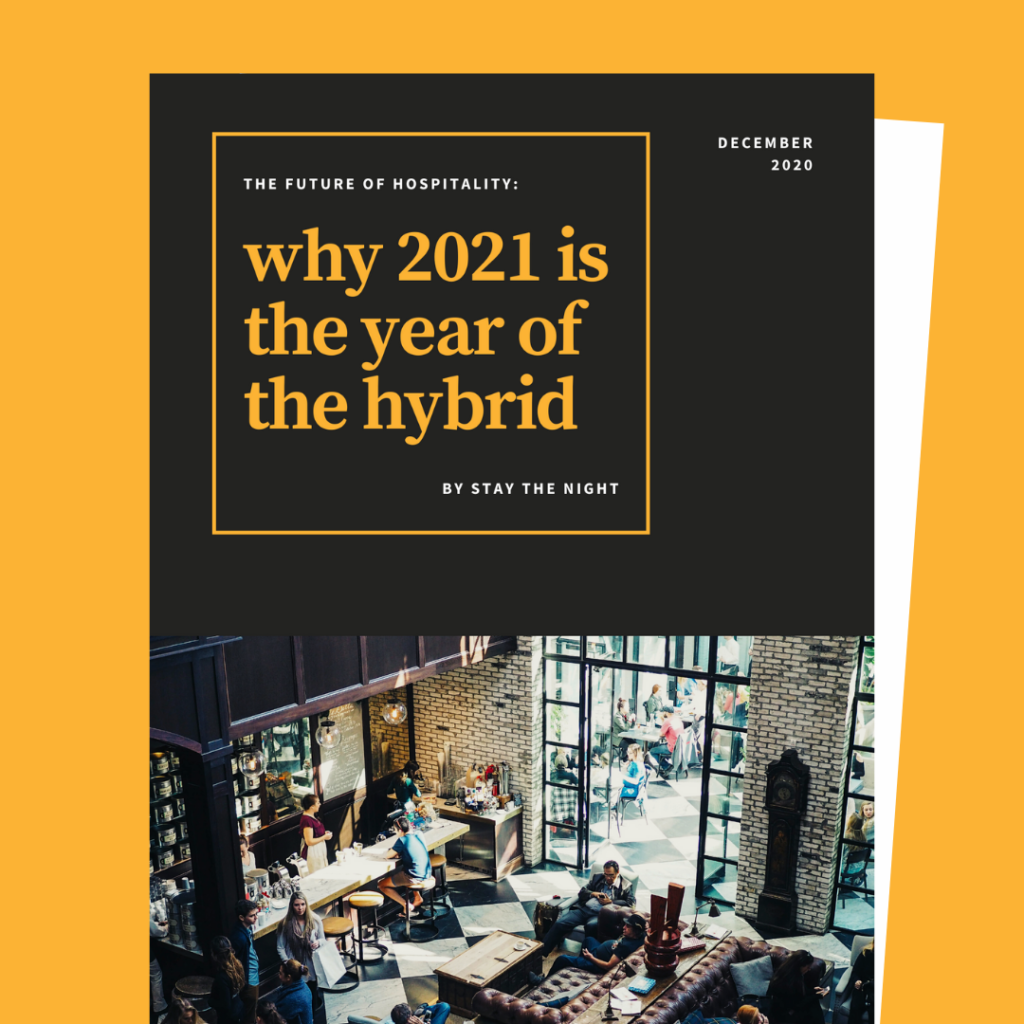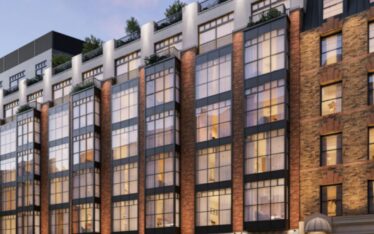Airbnb released their hugely anticipated S-1 IPO earlier this week which demonstrates the dramatic impact the coronavirus pandemic and changing travel trends have had on the business.
Like most businesses in the travel and hospitality industry, Airbnb has been hit hard in 2020 with revenue dropping 32% between January and September (in April, bookings were down by a massive 72% year-over-year).
But it’s not all bad news. In Q3 of this year, the company reported a profit of $219 million. This is largely down to the seasonal nature of the industry – Q3 is always a good period for Airbnb as it’s the busiest time for travel in the U.S. and Europe (plus, lockdown restrictions in these regions were less severe in many places during this time). Staff cuts and slashed expenses will also have played a role.
On measure, Airbnb is weathering the pandemic well and the short-term rental market looks positioned for huge growth as the travel industry recovers.
But what can hoteliers take from the report? We share 6 of our key takeaways below…
1. COMMUNITY – AND CONNECTION – IS KEY
“People are feeling increasingly disconnected in the world, and loneliness is pervading our society. The opposite of loneliness is belonging — the feeling of deep and genuine connection to a person, a place, or community.” [p.g 186]
While social distancing measures have forced many hospitality businesses to devise strategies to keep customers (at least a few metres) apart, Airbnb is doubling down on the idea of connection through shared spaces. Throughout the S-1, the company places an emphasis on community building – in fact, the word “community” appears no less than 166 times in the report.
It makes perfect sense that they would push this as a differentiating factor from their competitors. Community-building for brands has never been more important than in 2020 – we’ve already seen that brands with a strong community behind them have been better placed to withstand the negative effects of the pandemic.
It’s important to differentiate between brand community and brand awareness – just because someone knows about brand or has booked with you, doesn’t mean they are automatically part of an engaged brand community. Rather, a brand community is based on the connection your audience feels both to your brand and to each other.
Our digital, modern lifestyle has created a need for authentic interactions that connect us to like-minded people. Many hotels successfully facilitate connections like this onsite but fail to replicate it online through their marketing – or vice versa. But hospitality businesses that invest time and resources in building a thriving community around their brand, like Airbnb have, will see real growth.
2. BRAND MARKETING IS AS POWERFUL AS PERFORMANCE MARKETING
“The power of our brand attracts people directly to our website and mobile apps. During the nine months ended September 30, 2020, approximately 91% of all traffic to Airbnb came organically through direct or unpaid channels.” [p.g 197]
Airbnb is a globally recognised brand and the S-1 report demonstrates that investing in brand building since day one has paid off. The company has shifted their paid marketing efforts to brand marketing and expects to see their visitor mix shift further toward direct and unpaid channels (which represented 77% of traffic in 2019).
In recent years, many travel and hospitality brands – and marketing agencies – have placed brand marketing on the backseat in favour of performance marketing. While brand marketing seeks to enhance a company’s credibility, increase customer loyalty and prompt an emotional response from audiences, performance marketing is all about lead generation and conversions.
Rather than prioritising one strategy over the other, we believe finding a balance between the two is the key to long-term marketing success. Connecting with your audience on a more personal, individual level is of paramount importance – the best marketing does holistically across channels in a way which incites action and instills long-term loyalty in customers.
3. THE STAYCATION IS HERE TO STAY
“Domestic travel quickly rebounded on Airbnb around the world as millions of guests took trips closer to home.” [p.g 190]
The spike in domestic travel has been one of the biggest emerging trends coming out of the COVID-19 crisis, with guests opting to explore their own backyard in the face of closed borders and increased international travel restrictions. For Airbnb, this has provided a lifeline in an otherwise negative period.
We expect this rise in domestic travel to continue into 2021, as safety, affordability and environmental impact become even more important consideration factors for travellers. Heading on a staycation within their own country gives travellers more control over their environment and allows them to avoid being contained with other people in small spaces like aeroplanes. For many, it will simply make them more comfortable to stay closer to home.
Continued economic uncertainty will influence people’s travel decisions, too. For those who are tightening purse strings but still want to travel, heading on a trip that is closer to home could prove to be a more affordable option.
And even prior to the COVID-19 pandemic, there was already a huge movement towards travellers making more sustainable travel choices. Domestic and short distance travel has the potential to be much more environmentally friendly and this could prove to be a key booking motivation going forward – especially as people saw pollution and greenhouse gas emissions fall dramatically during the pandemic.
If you are looking to capture this domestic demand, then download a copy of The Staycation Marketing Guide – our free 75+ page eBook.
4. LONG-TERM STAYS ARE ON THE UP
“We believe that the lines between travel and living are blurring, and the global pandemic has accelerated the ability to live anywhere… Long-term stays were one of our fastest growing categories in 2019 as guests increasingly chose Airbnb listings to meet their need for stays of greater length” [p.g 142]
The increase in long-term stays (which Airbnb categorises long-term stays as those over 28 days) presents exciting opportunities for extended-stay and coliving properties.
As remote working has become the norm, people have also realised that they no longer need to stay in one location. This year has also given many people the gift of time which will have a long-term impact on how they travel. Forget rushing around ticking off all the tourist hotspots – slow travel is set to be a big trend in 2021.
Coliving spaces and extended stay hotels are particularly well placed to provide a flexible and affordable home away from home for those looking to live and work in new destinations post-pandemic.
If you are looking to pivot your brand to meet the needs of longer stay guests, you will need to consider the needs of this segment versus traditional leisure travellers. Extended stay guests will require additional services, from laundry to housekeeping and will be looking for onsite amenities like common areas, kitchens, gyms and outdoor space.
Along with these physical changes, you will need to restrategise your marketing to showcase the specific products and amenities which appeal extended stay guests to motivate them to book with you.
5. REMOTE WORKING IS CHANGING THE WAY WE LIVE – AND TRAVEL
“Stays of longer than a few days started increasing as work-from-home became work-from-any-home on Airbnb.” [p.g 190]
The shift away from office-based work has benefited Airbnb this year – and it can have the same impact for hotels.
Prior to COVID-19, remote working was already a growing market, with many hotels and hostels adding in co-working spaces and facilities to target workers on the move. This accelerated during 2020, with a number of hospitality businesses – including Qbic Hotels and hostel chain Ostello Bello – pivoting their offering to provide dedicated spaces for remote workers.
Of course, hotel lobbies have long doubled as flexible workspaces, but the new wave of hybrid hotels – which merge the lifestyle hotel concept with coworking – are well placed to capitalise on this trend.
Moving into this space can also open up a new revenue stream for hotels, who can monetise underused spaces by repurposing them into coworking spaces. Having a dedicated coworking space can also provide an appealing add-on for overnight guests, particularly if your hotel attracts business travellers.
If you have recently converted part of your hotel into a coworking space – or plan to do so in the future – check out our guide to marketing a coworking space here.
6. LOCAL EXPERIENCES ARE STILL PARAMOUNT FOR GUESTS
“Instead of traveling like tourists and feeling like outsiders, guests on Airbnb can stay in neighborhoods where people live, have authentic experiences, live like locals, and spend time with locals in approximately 100,000 cities around the world.” [pg. 190]
To say the term “live like a local” has been overused is something of an understatement – but, just like the term itself, people’s desire to experience destinations in this way is not going anywhere.
Your guests want more than just a room for the night – they want to know where the locals eat, drink, work and play. Positioning your hotel as a gateway to this local subculture will give guests a huge motivation to book with you. Your team can be an asset here – putting them front and centre in your marketing not only gives a human face to your brand (which audiences love), but also builds trust between your team and your audience.
Another way to help guests get under the skin of your neighbourhood is through local experiences. Run your own experiences or partner up with local agencies and businesses to facilitate for your guests. From surf lessons to cycling tours, tailor experiences to your destination and consider if there’s anything you can offer that no one else is providing. Interestingly (and arguably a little bit sneakily), Airbnb wrapped revenues from it’s ‘Experiences’ together with its core product which means the report provides little useful data on this product’s performance.
As the report states, the way people travel is set to fundamentally change in the coming months and years. With COVID-19 creating (and accelerating) emerging markets and the needs of guests changing rapidly, it’s never been more important for hotels to stay ahead of the game.

DOWNLOAD OUR WHITE PAPER – THE FUTURE OF HOSPITALITY: WHY 2021 IS THE YEAR OF THE HYBRID
Looking forward to 2021, the lines between where we live, work, and play are blurring faster than ever before. As people demand more from the hospitality experience, hybrids are in a strong position to meet this new consumer where they are. In this white paper, we share our 6 predictions on why 2021 will be the year of the hybrid. We also have interviews with leaders in this space who share their insights on the future of the industry.



